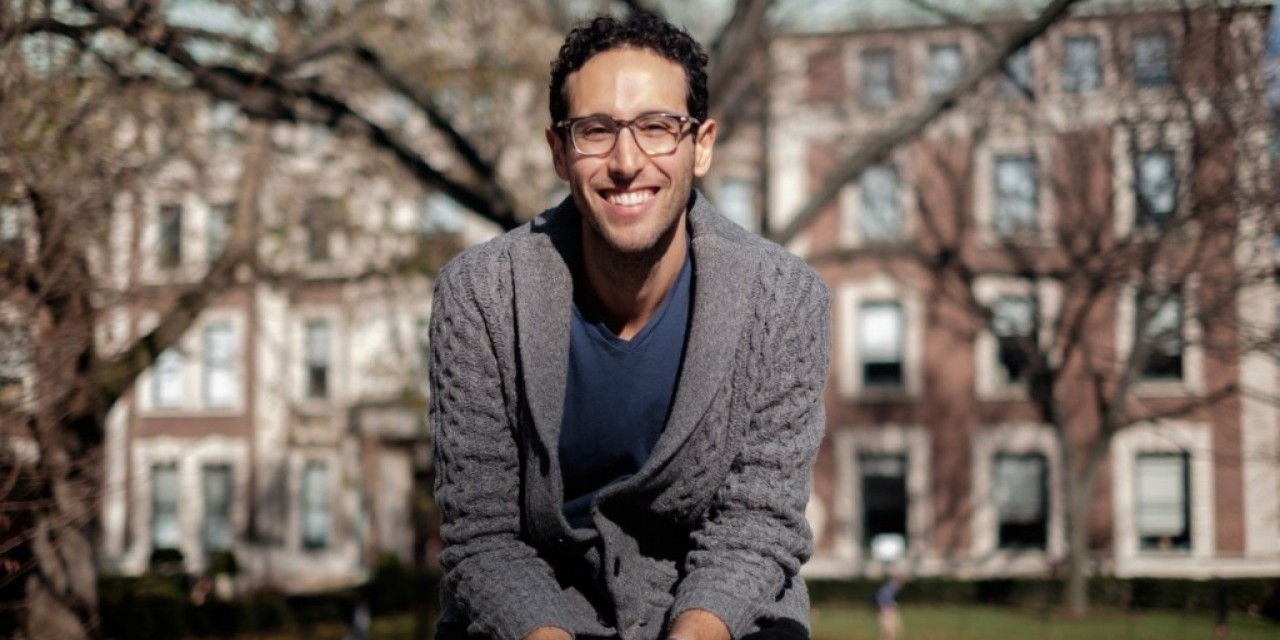Daniel Kronovet, MA Candidate in Quantitative Methods in the Social Sciences (QMSS)

Where did you grow up?
Santa Monica, CA.
What drew you to your field?
I have a bit of a hippie streak, and would often wonder how people could better live, work, and make decisions together. Eventually I came to realize that, to be effective, one needs to be able to approach problems in a rigorous and methodical way. This drew me to math and computer science, and ultimately to machine learning.
How would you explain your current research to someone outside of your field?
Ultimately, coordination problems are information-processing problems. In the human domain, two big challenges are gathering opinions and making sense of those opinions. I am currently exploring the concept of “pairwise preference” (a choice between two options), a representation that I believe may have interesting expressive and analytic properties.
What resources or opportunities that Columbia provides have been most valuable to you?
I am a bit of an unconventional student, and have been grateful for the support my department has given me in my exploration. Their assistance has been invaluable.
Is there a common misconception about a topic in your field that you wish you could correct?
That math is “too hard” or beyond someone. In my experience, math is about half spatial (visual) reasoning, and half logical reasoning. If you can think about shapes in space, and you can square a number, then you can learn math. It requires persistence—it won’t happen overnight—but if you take things one step at a time, you can do it. I can attest that life gets more interesting as you get better at math.
What do you consider your greatest achievement?
I hope it is yet to come! As for the past, I spent a year after college traveling solo around the world, through the Middle East and Asia. Staying safe and healthy while navigating unfamiliar countries, languages, and situations was a challenge and an adventure. Also, becoming an Eagle Scout in high school. I didn’t have the best habits as a teenager, and I owe a lot to the Boy Scouts for helping me develop better ones.
Who are your favorite writers?
Douglas Hofstadter, Robert M. Pirsig, Kahlil Gibran, Neil Gaiman, Hermann Hesse, Mohandas Gandhi, Kurt Vonnegut, Umberto Eco, Alan Moore, Patrick Rothfuss, Italo Calvino, Ken Wilber, Thomas Kuhn, and E.F. Schumacher.
Who are your heroes in real life?
There are two types of people I really admire. The first are tool-builders: the Unix and Ethereum developers, like Wes McKinney, whose work empowers and enables thousands. The second are people, including my parents and many of my friends, who trust their own instincts and reach their own conclusions, regardless of what those around them tell them to be true.
Whom in your field do you consider to be a role model?
I have so much respect for all the professors I’ve been fortunate to take classes from. One that stands out is Professor Daniel Hsu, in the Computer Science Department. His Advanced Machine Learning course taught me more in a single semester than I might have learned in two years.
What is your favorite blog or website?
Not to shamelessly promote myself, but I keep a blog.
What music have you been listening to lately?
Don’t laugh—I’ve been on a musicals kick for the last few weeks, so lots of Disney and Broadway. In general, Daft Punk, Coldplay, Glitch Mob, Ratatat, and Super Mash Bros. get a lot of play, especially when I’m biking. I’m also a huge fan of Dan Carlin’s Hardcore History podcast.
